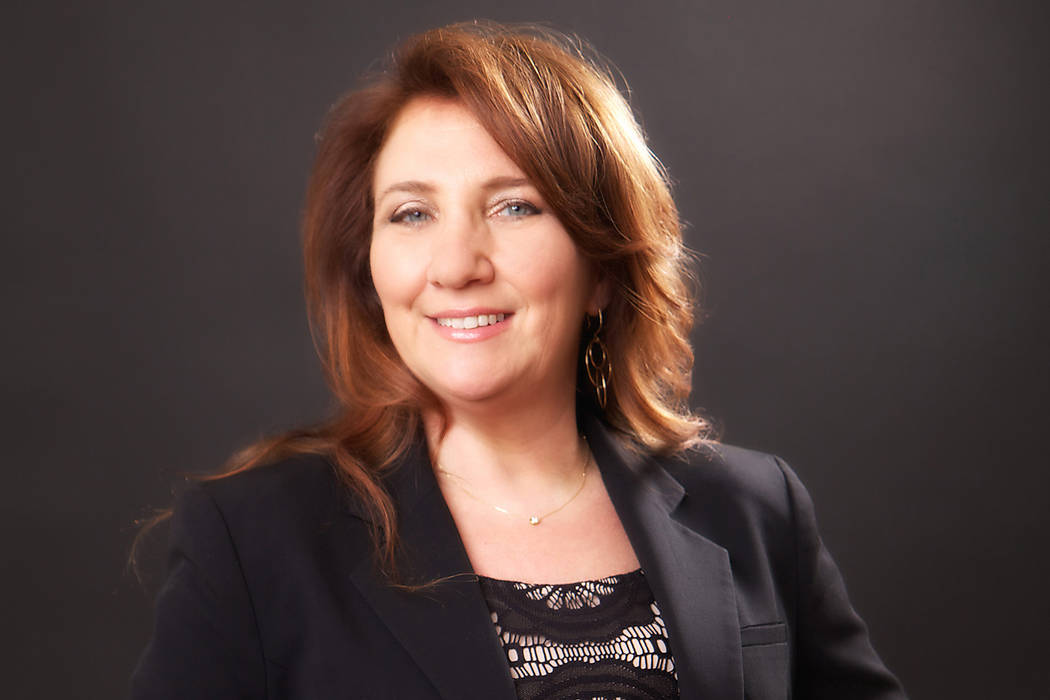Las Vegas woman restarts support group for families of incarcerated
Julia Lazareck remembers the feelings she had when her brother was sentenced to prison.
She felt as if someone had just died. Lazareck felt alone and wasn’t sure how to tell her friends her feelings or even how to broach the subject with family members.
“It was like saying goodbye to someone, but I could still see him,” she said. “Back then there was a lot of shame and guilt … it was something I didn’t talk about.”
Then Lazareck found Friends and Families of Incarcerated Persons, a Las Vegas support group for people in similar situations. At that point, it was run by founder Donna Metcalf and met weekly.
Started in 2000, FFIP helped thousands of people, according to Lazareck. It had a hiatus after Metcalf died from a terminal illness in May 2017. With Lazareck at the helm, the group’s meetings restarted last year and now occur every month. Additionally, FFIP hosts speaker events the first Thursday of every month at the Clark County Library.
“I just couldn’t see FFIP go away,” Lazareck said. Her home in south Las Vegas stores the nonprofit’s signs, pins and other items. Lazareck works full time and switches gears in the evenings to manage FFIP. On Sundays she goes to prisons with other FFIP members to hand out flyers to relatives and friends visiting inmates.
She has also recorded a podcast, “Prison: The Hidden Sentence.” In it she interviews those formerly incarcerated, as well as family members and friends of people in prison.
“(Her work) is extremely genuine; she’s a tireless advocate,” said Fury Young of Lazareck’s efforts. He met Lazareck at the InterNational Prisoners Family Conference in 2017. “What she went through with her family, I don’t think she wants anyone to experience that ordeal the way she did.”
Lazareck said her brother was sentenced for a “heinous” crime and served a life sentence; she wouldn’t elaborate or share his name. He died in prison in 2008 from hepatitis C.
Lazareck said she has received phone calls from people in other states inquiring about the program.
“There’s a need in the community for those who have people incarcerated to receive support,” Lazareck said, noting FFIP does not advocate against prison sentences. “It’s not the families that committed the crimes.”
Her memories of hiding her feelings when her brother was in prison are vivid, though he was convicted in the 1990s.
Besides managing the emotional burden of having a family member or friend incarcerated, there’s the financial burden of visiting faraway prisons.
To visit her brother, Lazareck would have to fly out of state, book a hotel and stay the night.
Locally, families could face financial struggles if their relatives are booked in facilities in remote areas such as the Ely State Prison, more than 200 miles from Las Vegas and with no direct flights.
Then there’s the stigma former prisoners face when they come home.
The situation can be harder for young children to talk about because they don’t want to be stigmatized by peers for having a parent behind bars, Lazareck said. FFIP is open to children, but the group also hopes to having some programming specifically for youth in the future.
At least 65 percent of male inmates in Nevada Department of Corrections facilities had more than one child at the time they were imprisoned, according to the department’s statistical summary for inmates between April and June 2019. The data did not specify the ages of the children or if they were 18 or older. About 21 percent had one child, 18 percent had two children and about one-quarter had three or more.
At least 75 percent of female inmates had more than one child. About 18 percent had one, 21.67 percent had two and more than one-third had three or more.
About 70 percent of the statewide inmate population was convicted in Clark County. As of Dec. 31, the total “offender” population in Nevada facilities was 12,929, according to a Department of Corrections report.
Saturday speaker
Young is set to speak at FFIP’s speaker series meeting at 6-7:30 p.m. Thursday at Clark County Library.
Based in New York City, Young heads “Die Jim Crow” — a music label for those who are incarcerated. The producers go into prisons and record inmates singing and rapping to their own songs. The group has worked in prisons in South Carolina, New York, Ohio, Mississippi and Colorado.
Legally, it is working in South Carolina to help the inmates earn money from the music produced through a “royalty trust,” Young said.
“It’s my job to bridge the gap and to increase people’s empathy and understanding what they are going through,” he said. “To break down that wall through music is an incredible way to do it.”
Contact Alex Chhith at achhith@reviewjournal.com or 702-383-0290. Follow @alexchhith on Twitter.
If you go
What: Showing of the documentary “Faces of Mass Incarceration,” hosted by Family and Friends of Incarcerated Persons
When: 1-4 p.m. Saturday
Where: East Las Vegas Library, 2851 E. Bonanza Road























